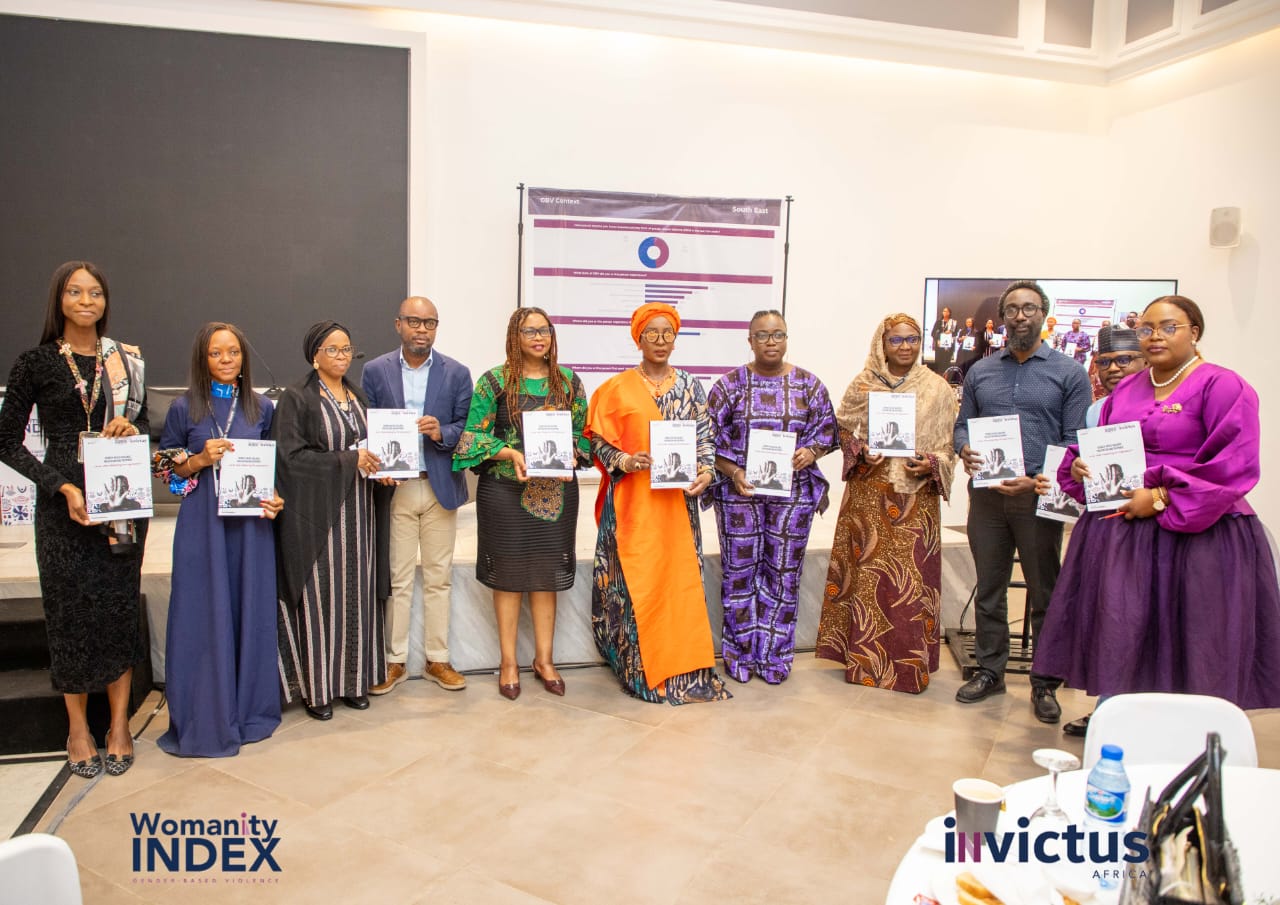 Invictus Africa, a civic-tech organisation that promotes human rights and gender equality through data-driven advocacy, leveraging digital technologies, building capacity, and engaging stakeholders, has released the second edition of its Womanity Index.
Invictus Africa, a civic-tech organisation that promotes human rights and gender equality through data-driven advocacy, leveraging digital technologies, building capacity, and engaging stakeholders, has released the second edition of its Womanity Index.
[ad]
The Womanity Index is an annual, data-driven, and evidence-based assessment of subnational governments’ performance in preventing and responding to Gender-Based Violence (GBV). This assessment is based on indicators spread across five indices: Laws and Policies, Access to Legal Justice, Support Services, Information and Awareness, and Budget and Spending.
The maiden edition assessed the underlying efforts of states, revealing that only six out of the 36 states and the Federal Capital Territory were making good efforts in combating GBV. The recently launched edition, themed “Are We Making Progress?” focused on measuring advancements over the past year.
According to the Executive Director of Invictus Africa, Bukky Shonibare, “Womanity Index was created to address the critical need for gender-focused data at both state and local levels while using such data to assess the performance of state governments in advancing gender equality. It informs policies, funding priorities, and strategic actions for effective prevention and response to gender-based violence in Nigeria.”
Chairperson of the Nigerian Governors’ Spouses Forum (NGSF) and First Lady of Kwara State, Ambassador Olufolake Abdulrazaq, who spoke about the impact of the group’s work in addressing GBV in Nigeria, recalled that the Nigerian Governors’ Wives Against Gender-Based Violence initiative emerged during the COVID-19 pandemic, which saw a disturbing spike in GBV cases due to lockdown measures. Ambassador Abdulrazaq highlighted that their collaboration with governors led to the declaration of GBV as a state of emergency in 2020.
According to her, the widespread adoption of the Violence Against Persons Prohibition (VAPP) Act, which went up from just 12 states at the onset of the initiative has now been passed in 35 states. She noted the extensive efforts of the group that ensured the passage of the Child Rights Act, especially in states like Bauchi, which was the last to adopt the Act.
[ad]
Deputy director, MacArthur Foundation Africa, Dr. Amina Salihu, called for the need for society to rethink social constructs, advocating for a shift in raising boys and girls as equals. Acknowledging the work of Invictus Africa in telling powerful stories through the Womanity Index, Dr. Salihu made a call for integrated data systems.
“All of our databases need to talk to each other and so the womanity index needs to talk to the sexual offenders’ database which is government-led. The data from the Sexual Assault Referral Centre needs to find some way here and also the dashboard of the Ministry of Women Affairs because we all must pull in together. That way, we can truly be more than the sum of our parts,” she said.
Regional Director of Ford Foundation for West Africa, Chichi Aniagolu-Okoye pointed out the economic implications of GBV, explaining how it limits women’s ability to participate in economic life, thereby stifling national growth.
“GBV drains the energy and resources that women can bring into the workplace. This is why GBV must be a priority not just for international development partners but also for the Nigerian government and civil society,” she said.
[ad]


